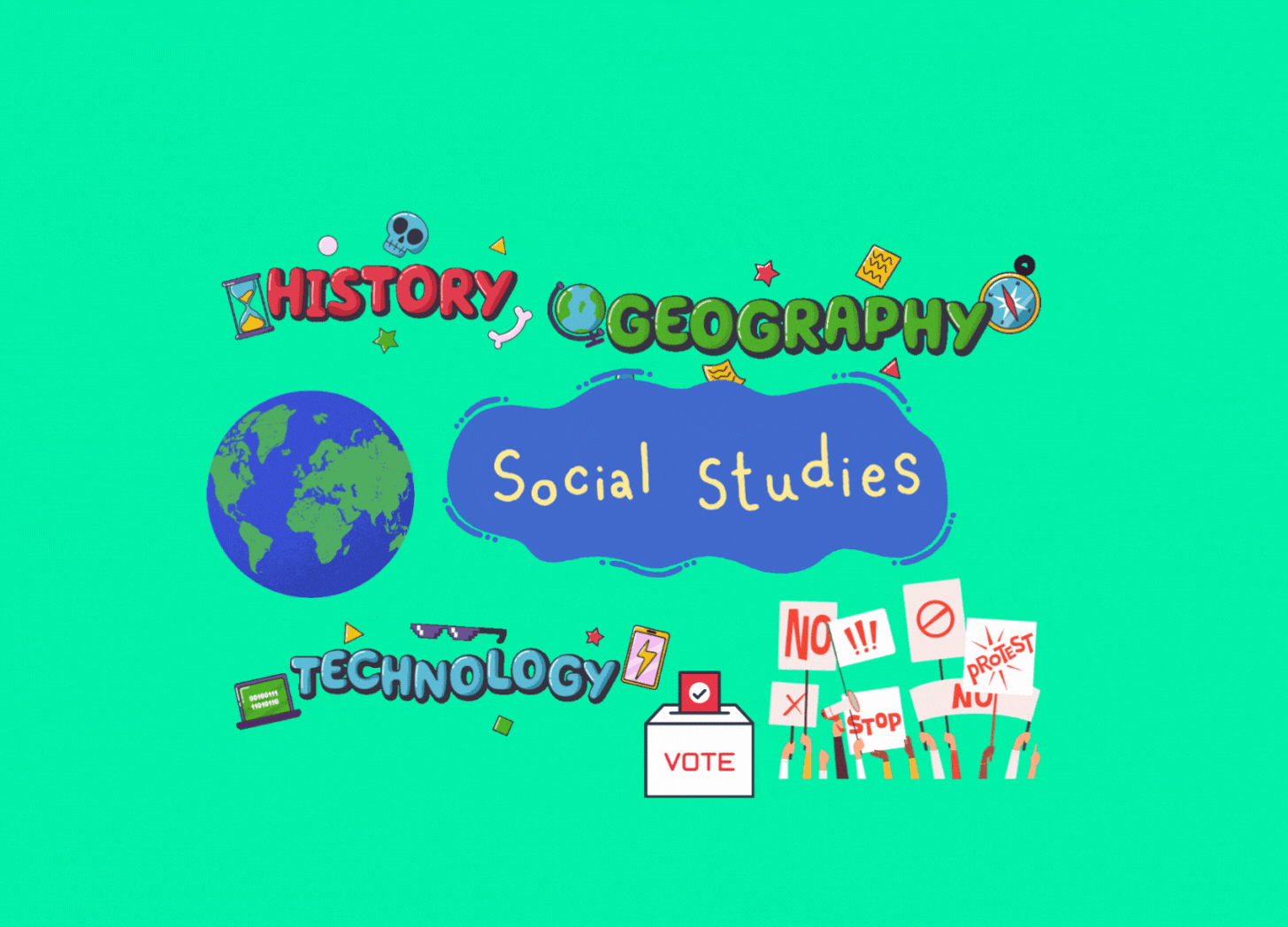🌍 The Best Social Studies for Kids
Complete Social Studies, Geography, History, Civics, Government, Digital Literacy and More
Social Studies is an educational discipline focused on the study of society and the relationships among individuals within a society. It encompasses a wide range of fields, including Civics, History, Geography, Government, Economics, and Cultural studies.
The National Council for the Social Studies (NCSS) defines it as "the integrated study of the social sciences and humanities to promote civic competence" (NCSS, 2010). The primary goal is to prepare students to become informed and engaged citizens who can contribute meaningfully to their communities and the broader society.
Outline of this Post
🌍 1. Intro
Why Does Social Studies Matter?
Why Supplement or Homeschool Social Studies?
Do you need a Social Studies curriculum?
How I selected
🏆 2. The Best Complete Social Studies for PreK-12th grade
🤿 3. Going deeper: the best in sub-categories
🗺️ Geography and World Cultures
⚖️ Civics, Economics and Government
⏳ World History and US History (also see last week’s post on History Programs!)
🧩 4. DIY Social Studies: Enriching Your Child’s Education Beyond the Classroom
🚌 5. School Standards: Subjects Covered in Traditional PreK-12 Social Studies Programs
🔎 6. How I vetted
✅ 7. What I looked for
📚 8. Sources
🍭 BONUS: Have a program to share? Or feedback on a program here you’ve tried? Is there a category I should add? Share it in the comments!
🌍 Intro
Why does Social Studies Matter?
At Modulo, we believe that a robust Social Studies education is essential for developing well-rounded, informed, and active citizens. Our recommended programs are designed to supplement traditional school curricula, providing students with the tools they need to understand and shape the world around them.
Learning social studies is crucial for several reasons. First, it helps students develop a sense of identity and an understanding of their place in the world. Through the study of history and culture, children gain insights into their heritage and the diverse backgrounds of others, fostering empathy and social cohesion (Barton & Levstik, 2004). Additionally, social studies equips students with critical thinking and analytical skills. By examining historical events, political systems, and economic principles, children learn to assess information, form reasoned opinions, and make informed decisions (Wineburg, 2001). Furthermore, social studies promotes civic literacy and engagement. Knowledge of government, law, and civic duties empowers students to actively participate in democratic processes, advocate for their rights, and contribute to the betterment of society (Parker, 2008).
Why Supplement or Homeschool Social Studies?
While social studies is a fundamental component of the PreK-12 curriculum, there are significant disparities in how it is taught across the United States. Many schools face challenges such as limited resources, a lack of qualified teachers, and an emphasis on standardized testing, which often leads to the marginalization of Social Studies in favor of subjects like Math and Science (Fitchett & Heafner, 2012). As a result, students may receive an inconsistent or superficial understanding of social studies topics. Supplementing social studies education at home or through specialized programs can help bridge these gaps. It allows for a more comprehensive, personalized approach to learning, ensuring that children receive a well-rounded education that fosters a deep understanding of social and historical concepts (Burstein, Hutton, & Curtis, 2006).
Do you need a curriculum?
Social studies education isn't limited to traditional curricula. It can encompass a wide range of activities, including world travel, visiting museums, reading books, watching documentaries, and engaging in civic activities. Parents have the opportunity to delve deeper into their children's specific interests, whether it be politics, social activism, cartography, or other areas. This flexible approach allows for a richer and more personalized learning experience that fosters a deeper understanding of social studies concepts and their real-world applications.
How I selected
I've spent the last several years rigorously vetting Social Studies programs to find those that are engaging, appropriately challenging, diverse, inclusive, and developmentally appropriate for children of different ages. I’ve sifted through thousands of comments in parent groups and spoke to curriculum developers and historians.
Here are my top recommendations in each category and why. In addition to my five favorite Social Studies programs, I've provided my top picks for specialized programs focused on Geography, World Cultures, Civics, Government and Economics. And since History is such a vast topic and integral part of Social Studies (but not all of Social Studies), we've devoted an entire extra post exclusively to History Programs for Homeschoolers.
The programs we recommend here are extraordinary. They are rich, nuanced, and delve much deeper than traditional social studies programs. They include documentaries, colorful books, video games, and fascinating stories about the world. One of them even sends snacks! Many are free or low-cost.
Most of all they inspire a deep passion for social studies in kids of all ages - and inspire them to be active citizens in this rapidly evolving world.
I'm in awe of these creators and excited to share them with you.
And without further ado, here are the recommendations.
🏆 2. The Best Complete Social Studies for PreK-12th grade
Keep reading with a 7-day free trial
Subscribe to The Modulo Community to keep reading this post and get 7 days of free access to the full post archives.





